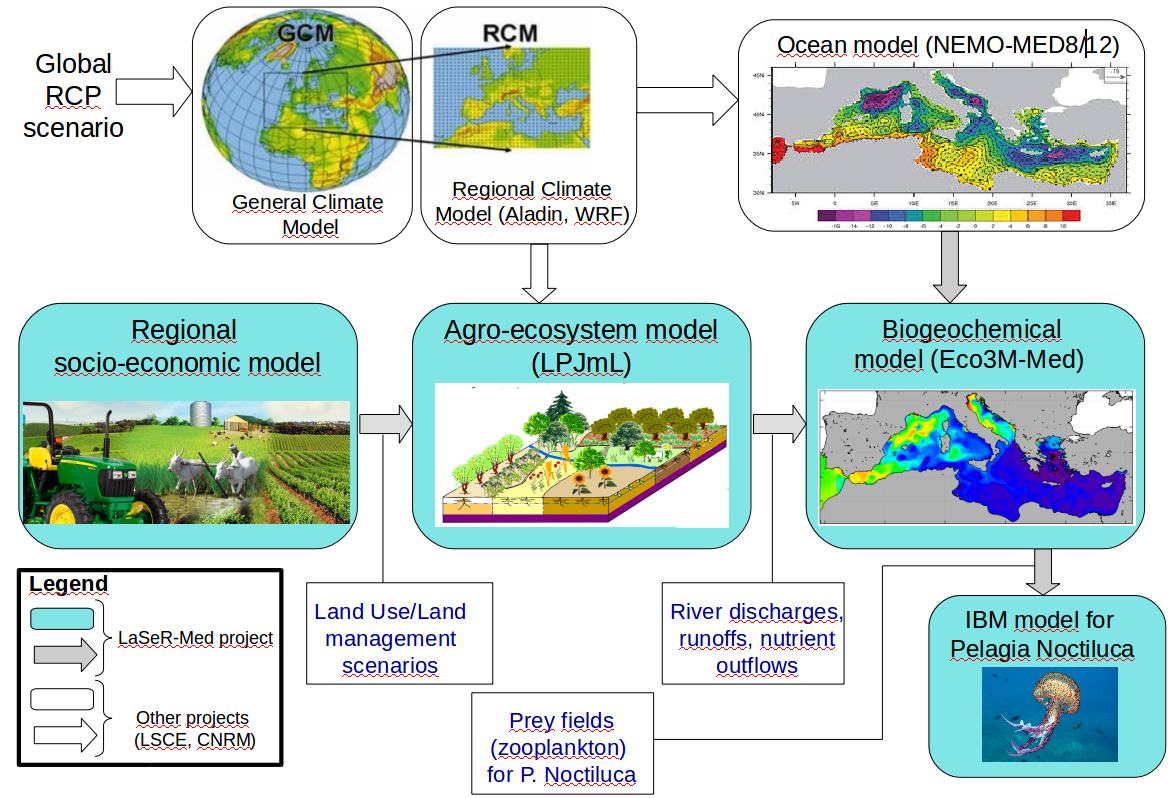Towards an integrated forecast of the responses of terrestrial and maritime ecosystems to global change in the Mediterranean basin - 2016-2019
PI: Melika Baklouti (MIO); co-PIs: Alberte Bondeau (IMBE), Dominique Ami (AMSE)
Funded by labex OT-MED (PI J Guiot)
Laboratories involved: MIO, IMBE, GREQAM/AMSE, CERGAM, INRA (ECODEV)
Main partner laboratoriesLSCE, CNRM
The ecosystems of the Mediterranean basin form a complex and unique network of terrestrial and marine biota. These ecosystems are heavily exploited and impacted by agriculture and forestry, urbanisation and tourism, fishing and other uses of marine resources.
Given the essential role played by these ecosystems in regional development, their management must benefit from a scientific assessment of the environmental risks and vulnerabilities that threaten them.
The LaSeR-Med project is a first step towards this objective: it aims to study the influence of climate change and population growth in the Mediterranean on the various ecosystem services provided by the terrestrial and marine ecosystems of the Mediterranean basin, using an integrated model (Fig 1) and climate scenarios combined with land-use scenarios.

The integrated model and variables exchanged between the different model components. The ocean dynamics used in the coupled physical-biogeochemical model are derived from the work of Hamon et al. (2016) for simulations carried out with the NEMO-MED12 configuration, and from that of Seuvault et al. (2014) and Darmaraki et al. (2019) for RCP8.5 climate scenarios carried out with the NEMO-MED8 configuration.
Main objectives
- Predicting and analysing, using relevant environmental indicators, the effects of climate change on key ecosystem services provided by terrestrial and marine ecosystems in the Mediterranean basin. Forecasts of changes in these ecosystems will be obtained from the integrated model (Fig.1) using the same regional climate forcing for the model's terrestrial and marine components.
- To study the effect of land-use scenarios derived from a socio-economic model aimed at maintaining a level of food sufficiency for the populations of the Mediterranean basin in a context of climate change and population growth in the basin. These scenarios will force the agro-ecosystem model and indirectly impact the ocean model via the quantities of nutrients reaching the sea via rivers or run-off.




